AMD Ryzen 3, 5, 7, 9…which of these AMD CPU tiers should you buy from to suit your needs best?
Today, I’ll be breaking down the modern AMD desktop CPU Hierarchy. The original AMD Ryzen series of CPUs launched on March 2nd, 2017 (my 20th birthday, coincidentally!), and in the years since we’ve seen plenty of iteration, including the addition of the Ryzen 9 series, the launch of Ryzen APUs, and more.
Let’s dive deep, and address everything you need to know to answer the big question posed by the title of this article.
Feel free to skip around with the Table of Contents below, or read in chronological order! Like competition in the CPU market, no one can stop you.
TABLE OF CONTENTS
A Brief on AMD Ryzen Processors and Generations Thereof
So, let’s take a moment to introduce the AMD Ryzen series properly.
AMD Ryzen’s first generation launched in March 2017 with the Ryzen 1000 Series on the AM4 motherboard socket. That same AM4 motherboard socket remained in use for a whopping five years, with support for AM4 ending alongside the Ryzen 5000 Series.
Modern Ryzen CPUs use the AM5 motherboard socket, since the release of the Ryzen 7000 Series. (Ryzen 6000 was for laptops only, if you’re curious.)
All Ryzen processors are named for the “Zen” CPU architecture that AMD debuted in 2017 and has been iterating upon ever since.
Prior to the Zen CPU architecture, on the AM2 socket, AMD had long been stagnating in terms of CPU performance compared to Intel, especially single-core performance, even if they could provide more cores-per-dollar.
It wasn’t until the Zen architecture was released and started closing the single-core performance gap that Intel was forced to start taking AMD seriously in the desktop market again, and as a result features like quad-core and six-core CPUs became more widely available than ever starting from 2nd Gen Ryzen/7th Gen Intel and onward.
Besides the mainline AMD Ryzen 3, 5, 7, 9 series of CPUs are the HEDT Ryzen Threadripper CPUs.
I’ll be discussing Threadripper a little later on in Follow-Up Questions, since Threadripper occupies a slightly different market segment despite also using the Ryzen name and the Zen architecture.
Like mainline Ryzen, though, Threadripper really pushed core counts in the CPU market to the next level, forcing Intel to boost their own to stay competitive.
At the risk of leaning too hard into the flowery language, AMD Ryzen is one of the most inspiring underdog stories in PC hardware.
After years of stagnation from AMD CPUs and an Intel-dominated market driving prices higher for less every cycle, Ryzen truly served to bring back the CPU market competition that looked like it was in danger of disappearing in the 2010s.
Fortunately, we now have a healthy and competitive market for both AMD and Intel CPUs moving into the 2020s, and I’m gonna go ahead and paint a vivid picture of the AMD side of that for you in this article, today.
AMD Ryzen 3, 5, 7, 9: Which Should You Buy?
AMD Ryzen 3 Is For…
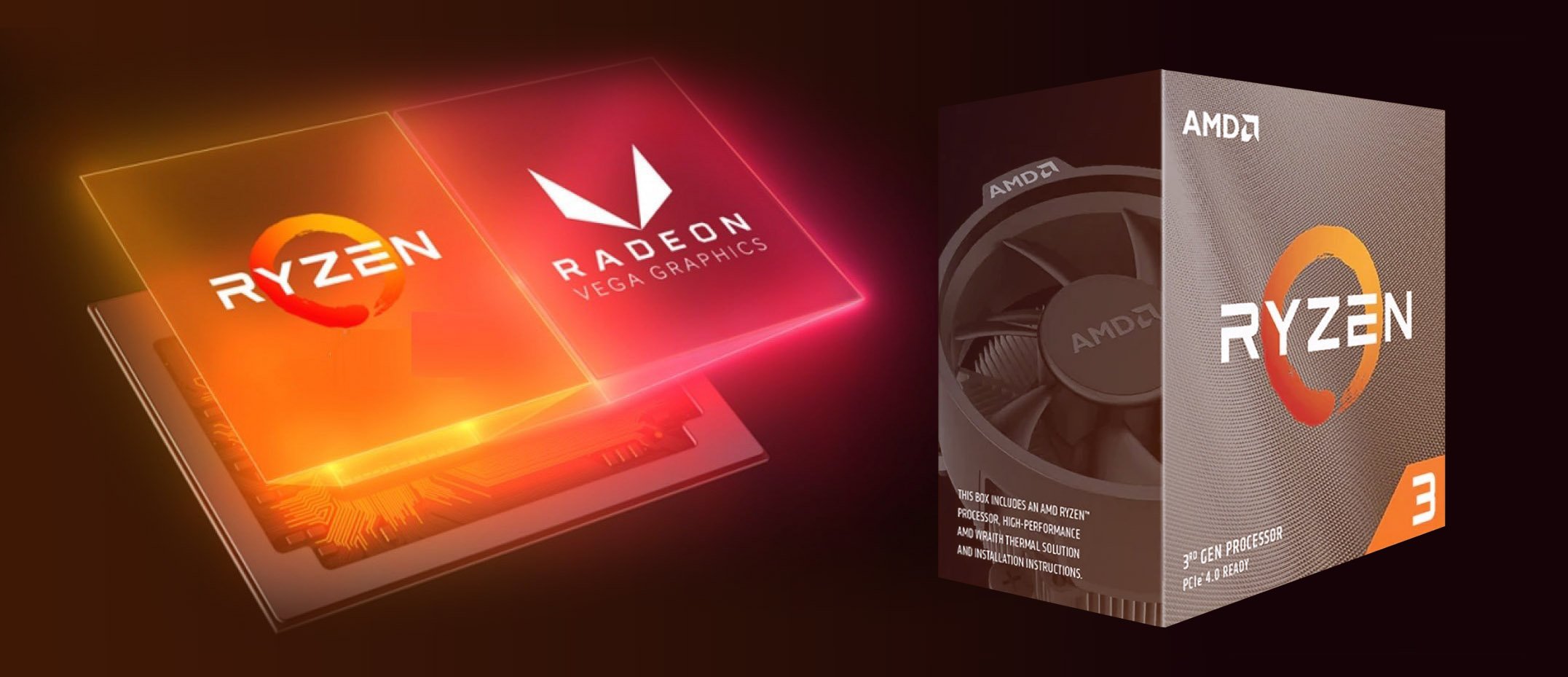
When the Ryzen 3 series launched back in 2017, it was notorious for bringing full quad-core CPUs to the entry-level desktop market in an era where Intel was reserving that feature for mid-range Core i5 chips.
The competition between the Ryzen 3 and Intel Core i3 series has remained suitably fierce in the years since.
Today, the Ryzen 3 series is still AMD’s main entry-level desktop CPU series, though if you’re on a real shoestring budget you can find Zen-based AMD Athlon CPUs for even cheaper than Ryzen 3.
Most would recommend Ryzen 3 as the proper entry-level for modern desktop usage, though, and I’m heavily inclined to agree with them.
At the time of writing, the latest AM5 socket actually doesn’t have any Ryzen 3 CPUs. The latest Ryzen 3 CPU is still on the AM4 socket, and they are most commonly APUs, which is AMD’s term for a CPU with an integrated graphics chip.
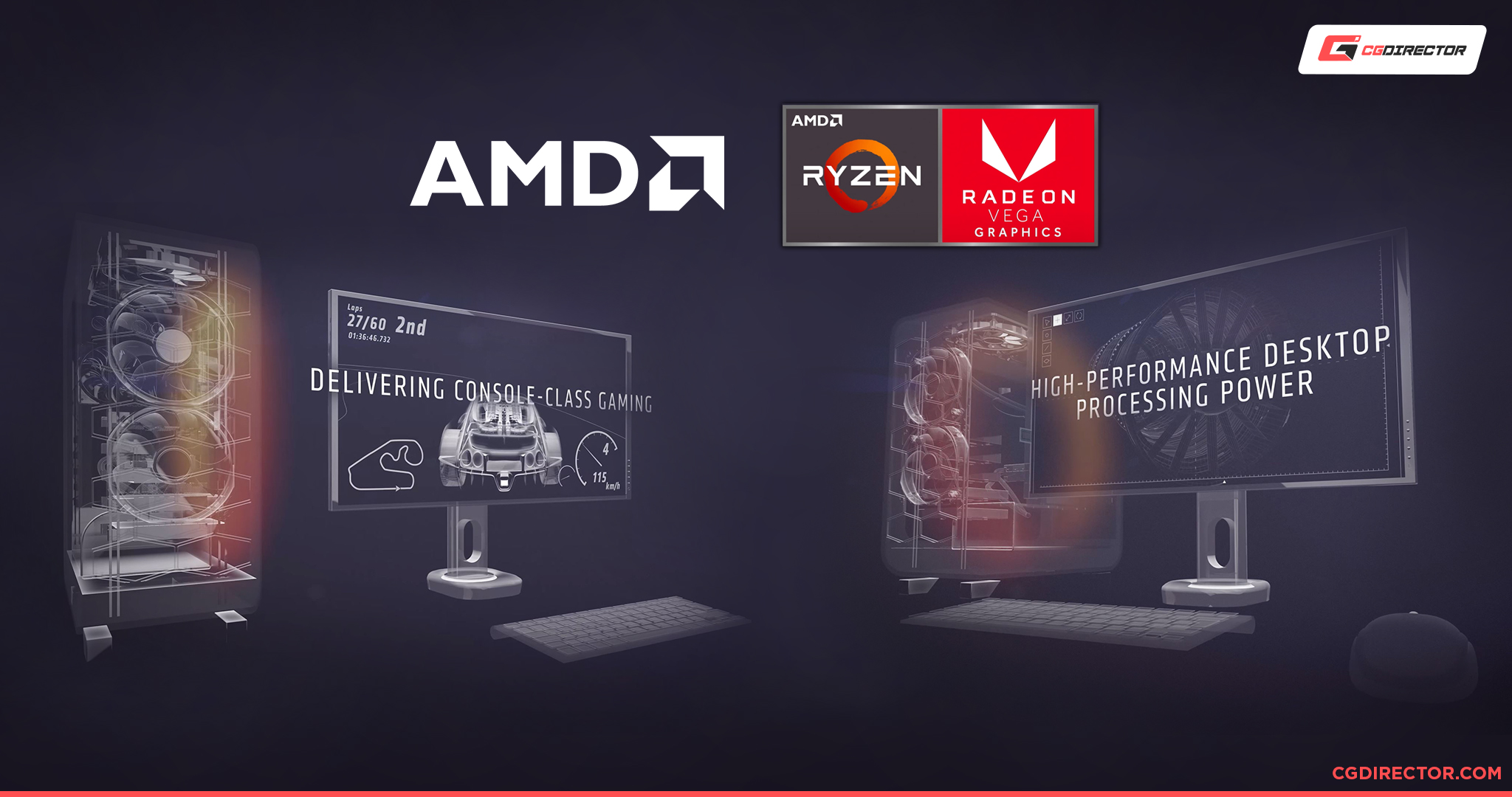
Source: AMD
AMD’s leadership in integrated graphics actually makes Ryzen 3 APUs the ideal entry-level desktop pick, with the capacity for lightweight gaming, rendering, and productivity tasks intact.
Ryzen 3 APUs are still quad-core chips, but modern Ryzen 3s support SMT to enable 8 processing “threads” to 4 physical cores.
Ryzen desktop APUs also used to have a quirk where the CPU cores would actually use last-gen hardware, which made them slower than their fellow Ryzen X000 series counterparts.
Fortunately, since 5th Gen Ryzen (the last AM4-based Ryzen generation), this has been fixed! However, an APU will still be slower than a non-APU counterpart as you climb Ryzen tiers, since that iGPU takes up resources from the CPU cores even when not in use.
Recommended Ryzen 3 CPUs:
- Ryzen 3 5300G (AM4 APU) — An entry-level Zen 3 APU with 4 cores, 8 threads, and a solid iGPU.
AMD Ryzen 5 Is For…
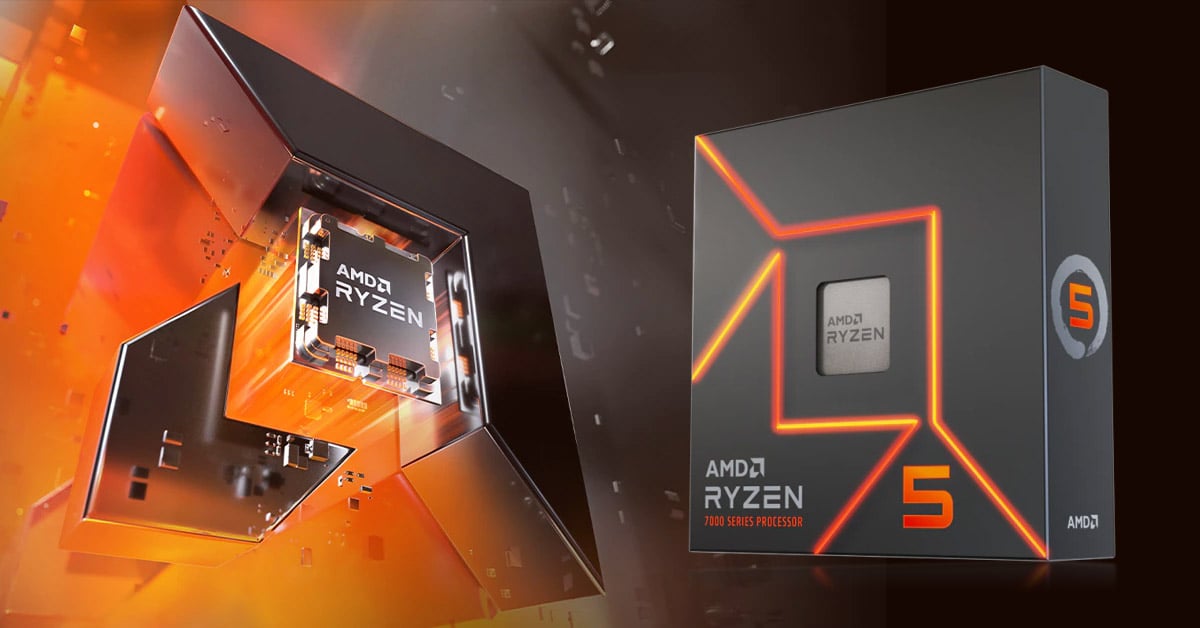
Image Credit: AMD
The Ryzen 5 series is AMD’s competitor to Intel’s Core i5 series, and typically comes in a six-core configuration, though the first-gen and mobile Ryzen 5s also have some quad-core chips.
Six, powerful modern CPU cores with SMT support for a total of 12 threads mean you have comfortably entered the mid-range of desktop CPU performance.
Mid-range CPUs from the Ryzen 5 series are great all-around chips for value-oriented rendering PCs, gaming PCs, and productivity machines in general.
Like Ryzen 3, there are also a fair few Ryzen 5 APU chips on the market.
These will still have a few of the same APU compromises (like using last-gen architecture to compensate for the added iGPU), but are overall much more well-rounded choices, and should remain viable as a main driver CPU whenever you upgrade to a discrete GPU.
If you aren’t planning to upgrade to a discrete GPU down the line, a Ryzen 5 APU instead of a CPU isn’t the best use of your money.
Recommended Ryzen 5 CPUs:
- Ryzen 5 5600G (AM4 APU) — Zen 3 like 5600X but less L3 Cache = Worse CPU Performance)
- Ryzen 5 5600X (AM4 CPU)
- Ryzen 5 7600X (AM5 CPU) / Ryzen 5 7600 (AM5) — Depending on price difference, near-identical chips. 7600 is a downclocked 7600X but includes an air cooler.
AMD Ryzen 7 Is For…
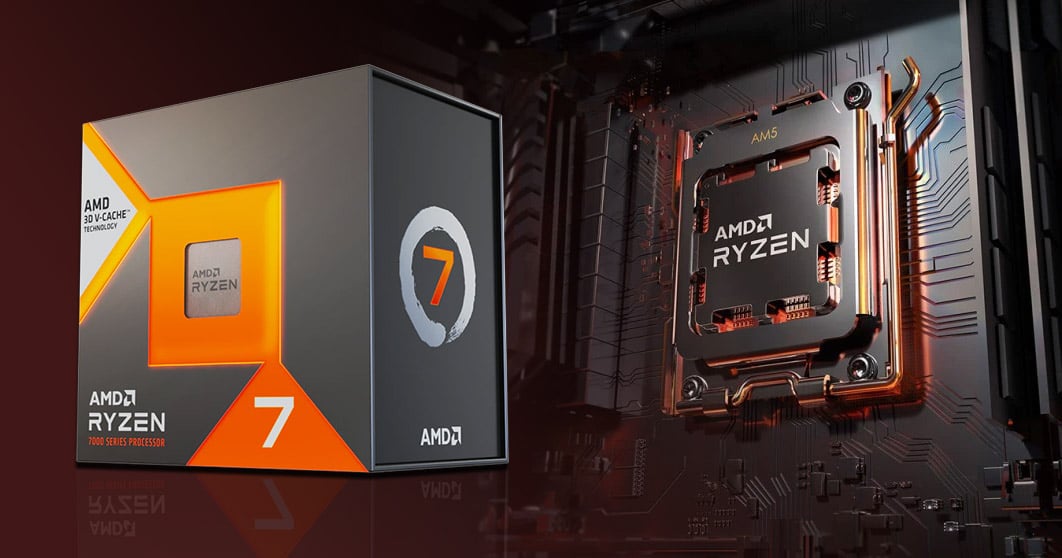
Image Credit: AMD
Ryzen 7 is AMD’s direct competition to Intel Core i7, and marks your entry into high-end AMD CPUs! This is where things start getting most interesting for professionals using their PCs.
Even before Zen, AMD CPUs were generally well-received for their performance in multi-threaded applications as long as the price was right.
With the ongoing iterations on the Zen architecture and subsequent releases of Ryzen, AMD has maintained a fairly strong multicore-perf-per-dollar argument, even as they climb into the high-end.
These days, Ryzen 7 chips usually come with 8 cores and 16 threads. This gives them considerable punching weight in rendering and productivity, and they’re no slouch in gaming, either.
In fact, the Ryzen 7 X3D CPUs are among the best gaming CPUs you can get your hands on due to their massively boosted L3 Cache.
Recommended Ryzen 7 CPUs:
- Ryzen 7 5700G (AM4 APU) — Only recommended if you need an iGPU and will upgrade to a discrete GPU later. Surprisingly competitive with the 5800X if the price is right, though.
- Ryzen 5800X (AM4 CPU) / Ryzen 7 5800X3D (AM4 CPU) — Mostly the same CPU. The X3D designation means that the CPU has more L3 Cache, which boosts single-core performance at the cost of some multi-core performance.

Image Credit: AMD
- Ryzen 7 7700X (AM5 CPU)
- Ryzen 7 7800X3D (AM5 CPU) — Despite higher numbering than 7700X, same “3D” deal as with the 5800X, meaning there are small compromises to multi-threaded/productivity performance compared to 7700X for a considerable boost in single-threaded performance. Considered by many to be The Best Gaming CPU on the market as of mid-2023— and unquestionably the best AMD Gaming CPU, even compared to the higher-end 3D chips.
AMD Ryzen 9 Is For…
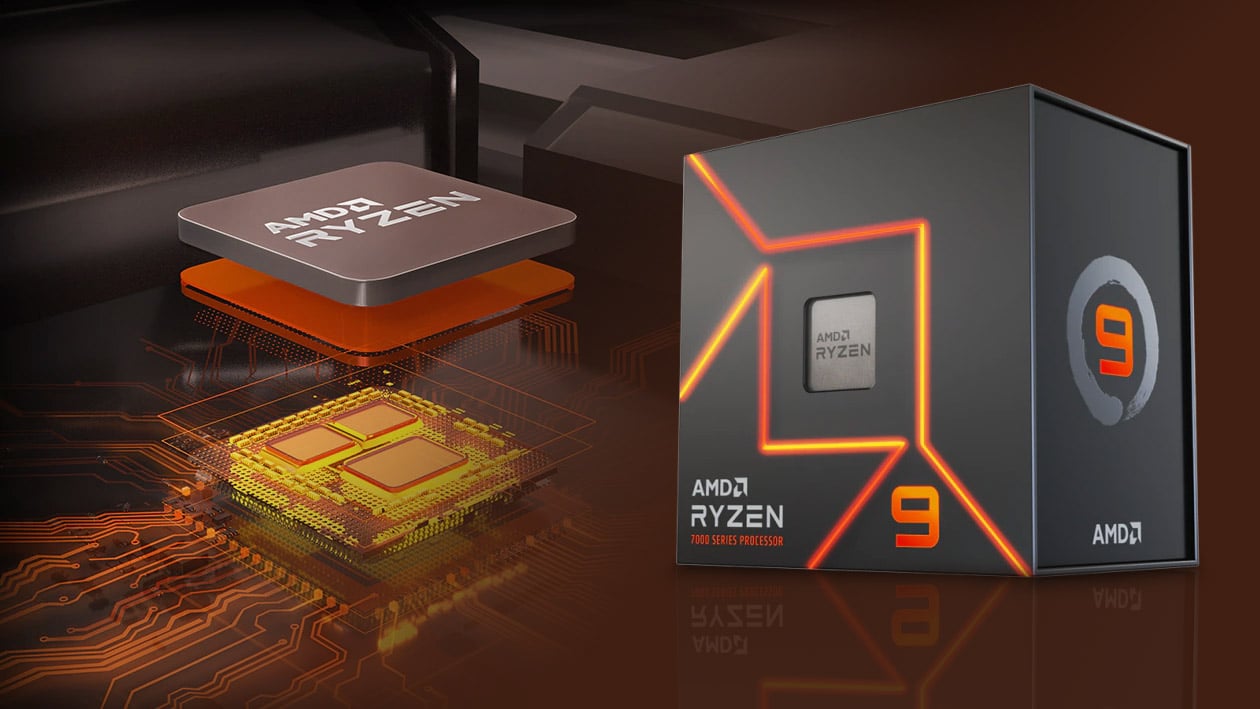
Image Credit: AMD
Finally, we’ve reached the true high-end of AMD desktop CPUs with Ryzen 9!
At this tier of CPUs, desktop CPUs like Ryzen 9 and Core i9 begin to push the boundaries toward HEDT and server CPUs by pushing the core counts as high as they can reasonably within the restraints of the desktop sockets.
The high core counts in these CPUs make them the best-suited of AMD’s consumer-facing CPUs for use in professional work, especially rendering, encoding, and other intensive multi-threaded workloads.
These higher core counts— starting at 12-core and going as high as 24-core— are also marked by very significant increases in price.
These pricing increases aren’t always directly proportionate to the increases in core and thread count, but if you’re actually able to utilize all the power offered by these CPUs on a regular basis, they do have compelling value for prosumers who don’t want to break the bank on HEDT or server setups.
HEDT and server also have some downsides compared to the high-end consumer desktop CPUs— more on that in the Follow-Up Questions.
For now, here are my recommendations!
Recommended Ryzen 9 CPUs:
- Ryzen 9 5900X (AM4 CPU)
- Ryzen 9 5950X (AM4 CPU)
- Ryzen 9 7900 (AM5 CPU) / Ryzen 9 7900X3D (AM5 CPU) — The usual X3D tradeoff applies here: greatly boosted single core speeds (favorable for gaming especially) at the cost of some multi-threaded performance (unfavorable for productivity). The X3D is also considerably more expensive this time around.
- Ryzen 9 7950X (AM5 CPU) / Ryzen 9 7950X3D (AM5 CPU) — Same as above, though the price difference is…less severe. “Less severe” is really the best you can say about Ryzen 9 pricing in general, though, even compared to Intel.
FAQ
Are Ryzen APUs Any Good?
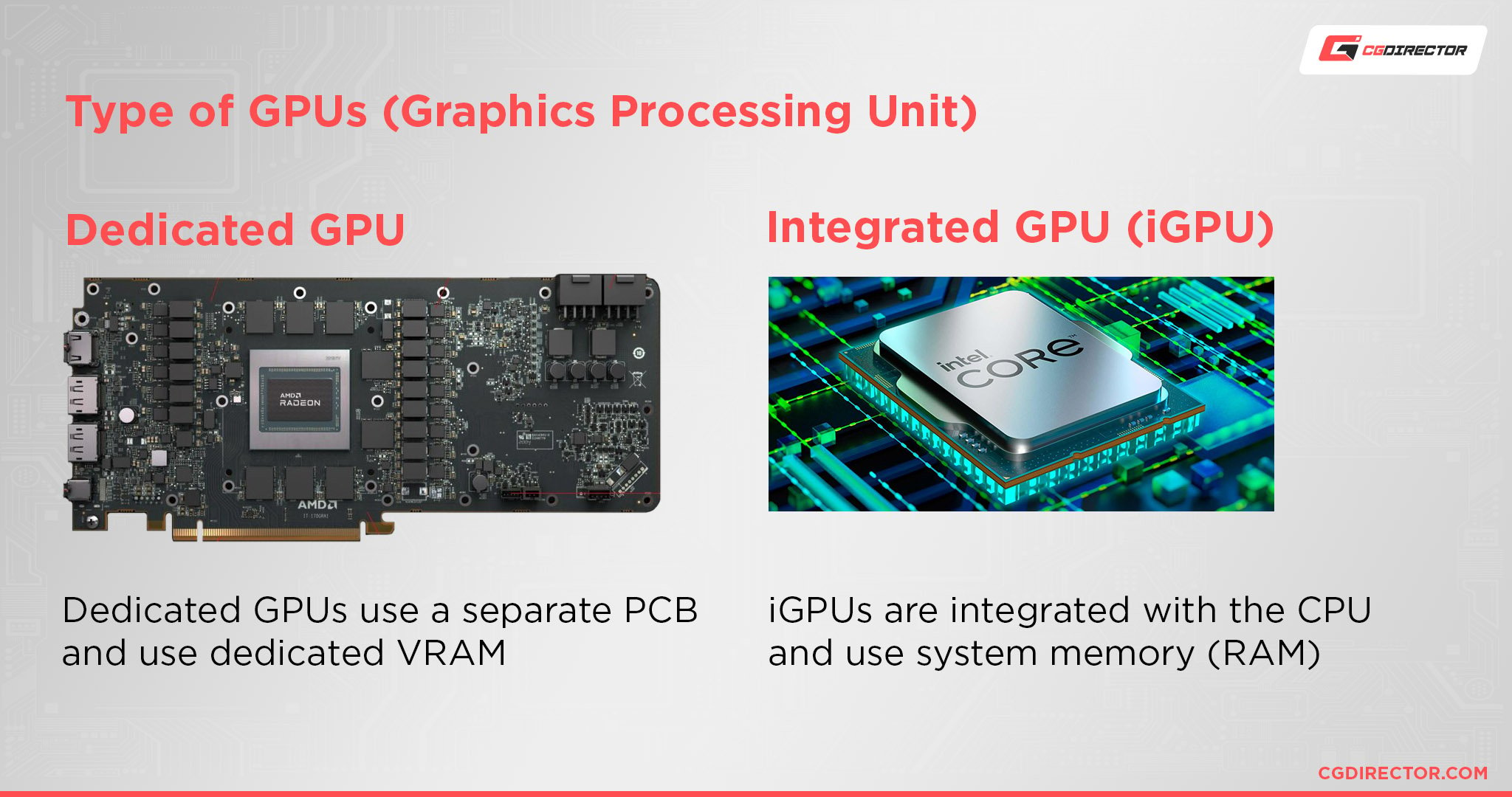
Ryzen APUs are pretty decent— considerably better in terms of integrated graphics than other CPUs, in fact!
However, Ryzen APUs are also targeted explicitly at the market of people who need a holdover GPU or don’t actually need a discrete GPU for their workloads at all.
If you aren’t planning on upgrading to a discrete GPU down the line, Ryzen APUs (especially Ryzen 5/7) are a somewhat poor choice in comparison to getting a pure Ryzen CPU and a discrete GPU, especially for productivity or gaming.
There is more to discuss with integrated GPUs than just “discrete is better”, though! Alex wrote and maintains an extended guide on Integrated GPUs vs Discrete GPUs, if you want more detailed information on this build choice.
Are Ryzen Threadripper CPUs Better Than Ryzen 9 CPUs?
If what you’re looking for is raw multi-core throughput, absolutely!
At that point, though, we should probably talk in some more detail about EPYC and Threadripper Pro, as well.
When Should I Consider Threadripper or EPYC Instead of Ryzen?
So, slight spoiler, but I’ve already written a full Threadripper vs Threadripper Pro vs EPYC Guide that should serve you very well if you’re asking yourself this question.
But when should you consider leaving Ryzen behind? I’d say you should consider TR, TR Pro, or EPYC if you fall into one or more of the following categories:
- You are building a server or render farm.
- You only use your PC as a workstation, not a gaming PC.
- You really want the best possible multi-core performance.
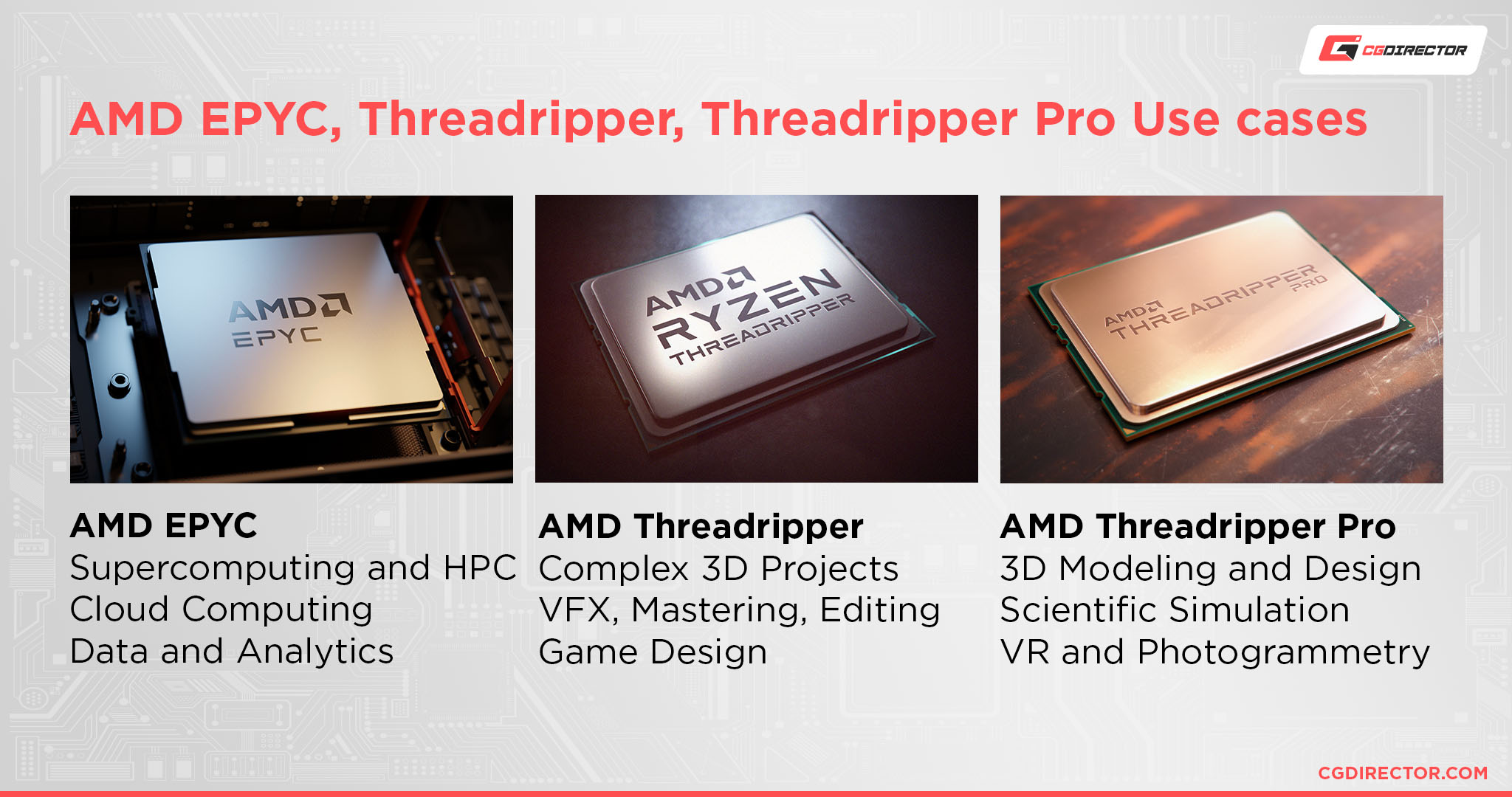
What Are The Best AMD Ryzen CPUs?
While I gave simplified recommendations of Ryzen CPUs in this article that I’m quite proud of, you may still find yourself wondering what the best Ryzen CPUs are, or just a better idea of how they compare to each other.
Fortunately, Alex maintains a nice list of AMD Processors in Order of Performance, including benchmarks, that should help answer this question in more detail.
As a generalized answer, though, I’d say Ryzen 5 and Ryzen 7 have the best price-to-performance balancing of AMD’s Ryzen CPUs.
Over to You
And that’s it, at least for now!
I hope that this article helped you find the right Ryzen CPU for your needs, or at least cleared up which bracket of Ryzen is targeted at which type of consumer.
Fortunately, the tiers are pretty straightforward, and the core counts have…mostly remained consistent year-over-year, even while per-core performance continues to increase every generation.
For pro applications that need literal dozens of cores, HEDT and server CPUs have always existed to just throw raw throughput at it, but Ryzen is still notable for boosting the core count, on average, of CPUs in the consumer market.
Even big dog market leader Intel had to fall in line, which I’m sure was completely unimaginable to them prior to the release of the Zen architecture. I’ll be giving them their day in the spotlight with an article like this soon regardless, though.
But until then, or until next time, have a good one! Happy building, and remember: pay for what you’re actually going to use because a higher number does not always mean a better experience for your money.
Gamers probably shouldn’t buy Ryzen 9 unless they’re willing to pay even more for a 3D chip, for example…and even then, the 7 3D chip might still be better for gaming. CPUs are quirky like that.
Should you have any questions, let us know in the comment section down below and, in case you need any help, head over to our forum and ask away!
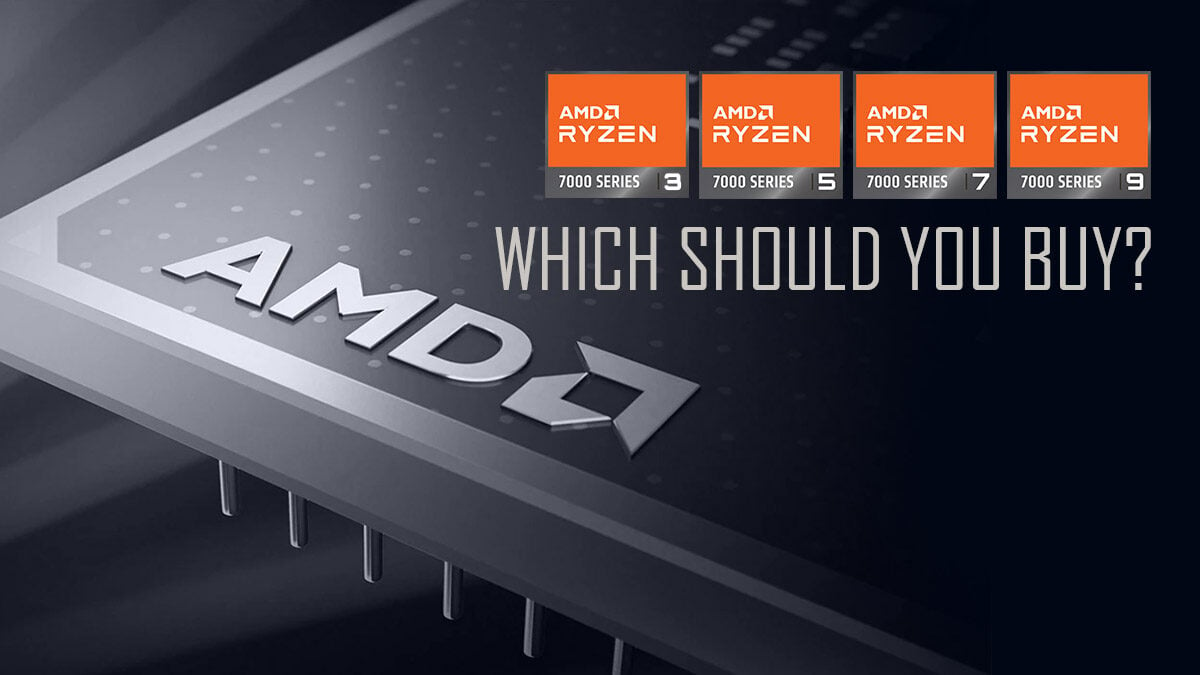
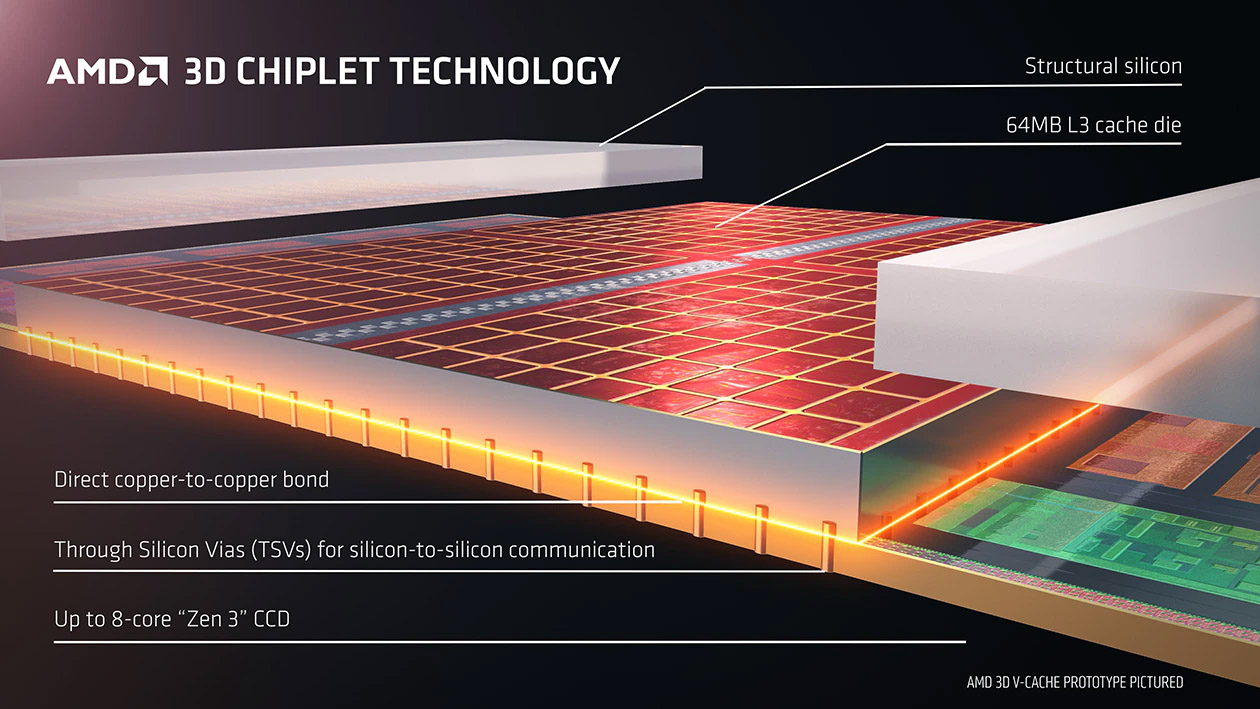
![Best CPU for Video Encoding [2024 Update] Best CPU for Video Encoding [2024 Update]](https://www.cgdirector.com/wp-content/uploads/media/2022/02/Best-CPU-For-Video-Encoding-Twitter-594x335.jpg)
![Is AMD’s AM5 Socket Backwards Compatible? [Quick & Easy] Is AMD’s AM5 Socket Backwards Compatible? [Quick & Easy]](https://www.cgdirector.com/wp-content/uploads/media/2024/01/Is-AMDs-AM5-Socket-Backwards-Compatible-Twitter-594x335.jpg)
![AMD Ryzen 5 vs Intel Core i5: Full Comparison [2024 Update] AMD Ryzen 5 vs Intel Core i5: Full Comparison [2024 Update]](https://www.cgdirector.com/wp-content/uploads/media/2023/10/Ryzen-5-vs-Core-i5-Full-Comparison-With-Pros-and-Cons-Twitter-594x335.jpg)
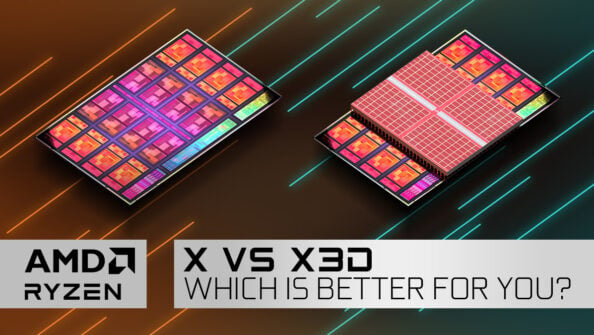

2 Comments
12 September, 2023
Nicely presented. I am looking to configure a new PC, since my 2016, 6th Gen i5 has bid adieu. This is a very crisp and helpful article.
Thanks a lot!
11 September, 2023
Great article. Which Ryzen cpu should I be looking at for use in a mini pc intended to replace my old desktop Lenovo for typical home use along with high quality graphic design (sketching/ drawing/painting) using software like Gimp, Krita, Heavypaint, Rebelle, Inkscape, and Photoshop?